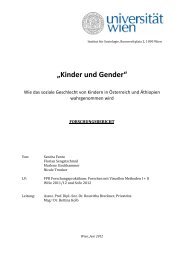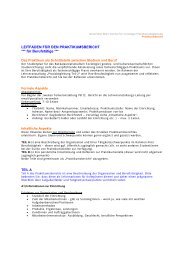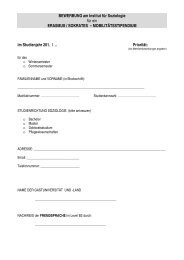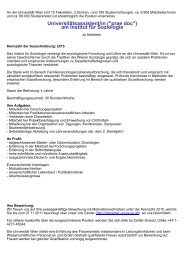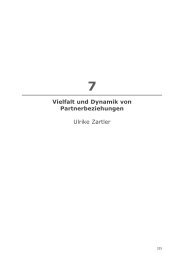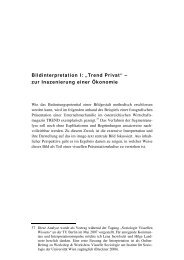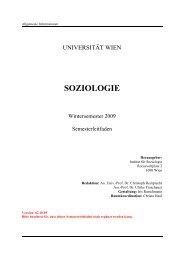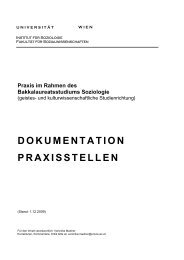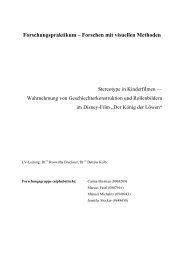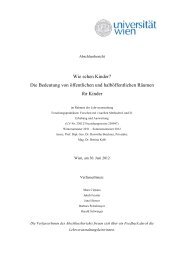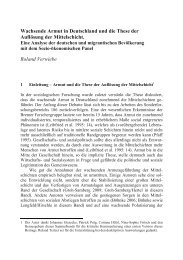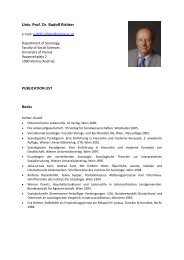Why do Europeans Migrate to Berlin? SocialStructural Differences ...
Why do Europeans Migrate to Berlin? SocialStructural Differences ...
Why do Europeans Migrate to Berlin? SocialStructural Differences ...
You also want an ePaper? Increase the reach of your titles
YUMPU automatically turns print PDFs into web optimized ePapers that Google loves.
14 Verwiebe<br />
Social and cultural<br />
reasons<br />
11%<br />
Economic and<br />
cultural reasons<br />
10%<br />
Economic and social<br />
reasons<br />
11%<br />
Cultural reasons<br />
19%<br />
FIGURE 1<br />
REASONS FOR MIGRATION TO BERLIN (1980–2002)<br />
Source: BSTME 2002, n = 1040, our own calculation.<br />
Social, cultural,<br />
economic reasons<br />
5%<br />
Social reasons<br />
30%<br />
Economic reasons<br />
14%<br />
reasons for migration. It is evident that economic reasons are not paramount<br />
for European nationals who migrated <strong>to</strong> <strong>Berlin</strong> between 1980<br />
and 2002. For 26 per cent of the individuals, economic reasons play a<br />
role in the decision <strong>to</strong> migrate, since the decision is based on a broad set<br />
of motives, including economic motives. However, only one in seven of<br />
the respondents mentioned economic reasons as the only or paramount<br />
fac<strong>to</strong>r. A noticeably higher importance is assigned <strong>to</strong> family and marriage-related<br />
and personal reasons, or <strong>to</strong> the respondent’s network,<br />
which, according <strong>to</strong> the data used here, constitute the most important<br />
reasons for migration within Europe (compare Braun and Recchi, 2008;<br />
Kofman, 2004). Lundholm (2007: 32), for example, also concludes that<br />
‘‘the most frequent motive for migrants … is social (40%)’’. King (2002:<br />
99) attaches great importance <strong>to</strong> the social fac<strong>to</strong>r in migration as well,<br />
which he beliefs is especially important for migration <strong>to</strong> major European<br />
cities. Furthermore, the cultural aspect plays an important role in intra-<br />
European migration, as in Scott’s (2006) study on Paris, regardless of<br />
whether it is based on an interest in a different language and culture or<br />
upon institutional migration established in order <strong>to</strong> enhance European<br />
integration (Castles, 2004; Findlay et al., 2006; King and Ruiz-Gelices,<br />
2003; Lundholm, 2007). This result indicates, as assumed earlier in the<br />
Ó 2011 The Author<br />
International Migration Ó 2011 IOM



